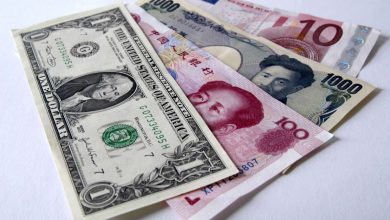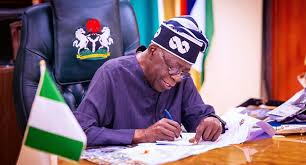NESG v CBN: Issues Deconstructed – In Praise of Contexts

Taking a cue from the arguments between the CBN and NESG on the direction of the Nigerian economy, it appears clear that in the last five years, Nigeria’s economy has bobbed and weaved between recession and modest growth as a result of external economic shocks from falling crude oil prices (in 2016) and a global health pandemic (Q1 2020) riding atop a trade tussle between Saudi Arabia and Russia for increased global oil market share in Q1 2020.
Tumbling oil prices and economic shutdowns mainly in Q1 and Q2 2020 has led to negative GDP growth rates in several countries around the world. The decline in global economic activities has resulted in higher unemployment rates, rising business and individual bankruptcies, and major disruptions to global business supply chains. To pull through the difficult times both monetary and fiscal authorities across the globe have resorted to unconventional economic policies including quantitative easing (QE) mixed with targeted fiscal interventions. In the case of Nigeria, more recently the federal government (and a few states) have hiked retail tax rates and removed subsidies on petrol and energy plum in the middle of a recession, this is, of course, counterintuitive, and contrary to the policies in other global economies, but at a time of COVID-19 who knows what works?
Indeed, markets may look a bit drunken in a coronavirus environment with monetary and fiscal policies and their consequences pivoting to surprising directions, but certain basic principles remain (even though the economist’s Philips Curve which shows the relationship between Inflation and unemployment seems to have disappeared).
To push GDP upwards countries have ha to expand fiscal policy (in true Keynesian fashion) and allowed for monetary easing which has seen interest rates fall as unemployment rates dipped at differential rates across American, Asian and European economies. Indeed macroeconomic consequences of expansionary fiscal and monetary policies differed across Africa too.
In Nigeria, the Central Bank has had a grand time of intervening massively in economic stimulation through a pile of intervention funds. It may be too early to say how effective these interventions have been but with rising inflation (+13.22% in August up from +12.82% in July 2020), GDP growing at -6.10% in Q2 2020, and unemployment at +27.1% at the end of the first half of the year, analysts are irritable about the success of what Proshare in its Coronanomics Report released in May 2020 on page 4 called “fiscmon“, a contemporary economic management arrangement that breaks the distinction between monetary and fiscal policy and allows the monetary authority to dominate economic coordination between traditional fiscal and monetary policy. The report stated that fiscmon “represents an integrated approach that sees monetary and fiscal management tied into a forward plan of action to achieve clearly stated objectives within a specified time frame“.
CBN’s Economy Nudge
The Nigerian Central Bank jumped in early to head off a possible severe recession in 2020 as a result of falling international oil prices, dwindling fiscal revenues, and supply chain shock caused by the economic disruptions accompanying the global coronavirus pandemic (COVID-19) that had started to hurt local businesses. The CBN’s interventions were important but the jury is still out on its impact.
The numbers published by the National Bureau of Statistics (NBS) on leading macroeconomic indices for the country between January and June 2020 remain unflattering. The CBN has said that things could have been worse without its intervention but this is as good as saying that a man that drowned in a swimming pool was a lot better than one that drowned in the Pacific ocean, after all, there are no sharks in a swimming pool!
However, dead men do not care where they drown they simply stay dead. The principle point is that the CBN’s policies need to show evidence of effectiveness to drive up the confidence and trust deficit plaguing the private sector. The intervention programmes of the regulator have been laudable but reticent in pushing the needle of growth and development within the pandemic. Some analysts point to the relatively softer impact of COVID-19 on the domestic economy relative to the more severe outcomes for economies such as South Africa. They argue that Nigeria’s economy was still gasping for life at a time others were in a coma and not much of the private sector activities were reflective of a nudge by CBN intervention policies in Q1 and Q2 2020 (micro and small enterprises (MSMEs) were stooped in a gully as demand petered and domestic supply chains broke down).
Economists argue that at the time a full lockdown was imposed on the country by the federal government in H1 2020, only Lagos, Abuja FCT, and Ogun State were majorly affected, as other parts of the country carried on business as usual right up to the end of March. The restrictions in interstate travel merely prevented the ease of physical movement of persons but circumnavigated agricultural produce and other essential manufacturing inputs that still got to their points of need during the period.
Economic analysts have observed that the CBN’s intervention programmes commenced well before the emergence of COVID-19 in Q1 2020 and that programmes like the agricultural sector anchor borrowers programme (ABP) are yet to produce the agricultural bang for the policy buck. A similar tale of tottering performance would be true for other interventions in aviation, manufacturing, and entertainment. Recent media reports on the local agricultural sector have noted that the anchor borrowers loans (estimated at N240bn) have been difficult to recover as beneficiaries of the loans claimed that they thought the loans were government grants to ease the financial burdens of the coronavirus pandemic. The convenient misdemeanour was expected and slightly comical. The ABP has been peppered with problems that would have been better handled at the level of bank retail project management than as a pet scheme of a banking sector regulator.
- Poor farmer identification (this is the difference between ‘portfolio’ farmers and hands-on farmers)
- Poor farmer loan administration and monitoring (the absence of farmer addresses and locations is a classic case of poor loan governance)
- Poor farm infrastructural support (poor road networks, logistic challenges, and produce preservation inadequacy combine to disrupt the sectors value chain growth)
- Supply chain disruptions and absence of disaster recovery plans (DRPs) (supply chains weakened by COVID-19 need to be restored and prepared for a post-COVID-19 era, the risk-proofing of agricultural output becomes critical in times ahead)
- The local commodity Exchange is still weak and lacks depth and breadth, limiting its usefulness as a risk-protection arrangement and a price-discovery mechanism
The Other Parts of Lending
CBN’s intervention in other sectors of the economy has been no less distressing. The aviation sector fund has not provided a robust boost to the sector and with the coming of COVID-19 and its disruption to air travel, the sector is in pre-terminal agony. Virtually all domestic airlines and their ground handling companies are struggling for breath. Even the strongest of the local airlines, Air Peace, had to sack 69 pilots in August 2020. As a further measure to guarantee the company’s continued operations, the company had salaries of 3000 workers cut by 40 percent. As of August 2017, the CBN had disbursed N277.4bn under its N300bn power and aviation intervention fund (PAIF). The outcome of the fund disbursement has been mixed but represents a much better performance than the agriculture sector.
The PAIF fund was disbursed between September 2016 and June 2017 with N106.13bn repaid within the period. The money was disbursed as loans across 16 airline projects and 43 power projects.
Kicking The Can Forward
On March 15 2020 the CBN announced some important market intervention programmes designed to keep the economy ticking and preventing a sizable loss of local jobs. Among the measures taken by the Bank at the end of Q1 2020 included:
- A one-year extension of a moratorium on principal repayments of CBN intervention loans
- A reduction of interest rate on CBN intervention lending from 9% to 5% per annum.
- Greater enforcement of the 65% loan-to-deposit ratio (LDR) for local deposit money banks (DMBs) to increase credit to the private sector.
- Creation of N50bn target credit facility for households and small businesses affected by COVID-19
- Granting regulatory forbearance to banks to restructure the terms of loans that had been adversely affected by COVID-19
- Improving FX supply to the CBN by directing oil companies and oil service companies to sell FX to the CBN instead of selling to the Nigerian National Petroleum Corporation (NNPC)
These measures were desirable at heart but failed the tests of potency, clarity, and coherence. The CBN appears to have taken on an elephant-sized job of trying to stimulate the domestic economy without pushing the inflation button, but like all elephants, handling the pachyderm’s size is a hefty matter.
Proshare adopted a multiple regression approach to understanding the relationship between unemployment and inflation. The result was similar to earlier studies which showed that Nigeria does not appear to have a trade-off between inflation and unemployment, or the so-called economist’s Phillips curve does not exist for the country. So how should the CBN respond to a phantom curve? The Phillips curve says that if government policy allows for expansion in money supply (or the use of the CBN’s monetary handlebars), the national output would grow but with an accompanying inflationary effect. This outcome was the fast and dirty conclusion of British Economist A.W. Phillips. However, the perspective of an inverse relationship between unemployment and inflation no longer appears to hold. Therefore, expecting to fix CBN policy within this framework may be inappropriate, meaning that some aspects of the NESG perspectives could be misleading.
The CBN has tried to reduce unemployment by expanding credit with minimal inflationary consequences. According to the Proshare augmented Phillips curve regression model a one percent rise in the unemployment rate would lead to a 0.47% increase in inflation. If the Phillips curve assumption holds a rise in unemployment should result in a fall rather than a rise in inflation (see Proshares single-step Linear Regression Model in appendix).
This counterintuitive result based on contemporary data (Q1 2010-Q2 2020) makes policy choices difficult. Since credit expansion would not increase inflation should the CBN continue to prime the pump and expand the money supply to create growth, output, and employment? But come to think of it, without a Phillips curve relationship an increase in credit does not reduce unemployment but increases it, so should the CBN cut credit to increase employment?
Both the CBN and NESG appear to agree on the existence of a domestic short-run Phillips curve and they equally agree that credit expansion could lead to a growth in output and employment, but regression analysis suggests they are both wrong.
The traditional macroeconomic theory says that a slump in GDP accompanied by a large budget deficit would lead to the CBN raising interest rates to shore up the exchange rate and counter the potential inflationary impact of fiscal spending. If the CBN accommodates the fiscal deficit interest rates would fall as the exchange rate rises and output and employment may or may not increase with a lot resting on the uncertain impact of the rising exchange rate on domestic input costs (see illustration 1).
Double Whammies
Two solid punches to the jaw could knock down anybody, including an economy. The double whammy of a health pandemic combined with a drop in oil prices for a major oil-producing economy could lay the economy on the canvass, Nigeria has experienced that dizzyness as inflation spiraled to +13.22% in August 2020 as unemployment banked at +27.1% in Q2 2020. The hard blows of rising inflation and escalating unemployment made mincemeat of the macroeconomic framework used by economists to interpret the economy and its policy tradeoffs.
Both the CBN and the NESG (even if through a marriage of convenience) would need to sit down and work through the dynamics of how the Nigerian economy works to fashion out policies that enable a non-accelerated inflationary rate of unemployment (NAIRU). Or given that studies (including that of Proshare) suggest that there is no trade-off between domestic inflation and unemployment, the two organizations would have to come up with policies that allow for the reduction in inflation and unemployment simultaneously. From the worst of both worlds, the economy needs to move towards the best of both worlds, the policy algorithms may be difficult but not impossible.
A second twin punch has been the combination of international oil price collapse (which has driven a pole into the heart of the government 2020 fiscal arithmetic) and the debilitating consequences of a viral global health pandemic or COVID-19. The potential outcomes of the different scenarios of the pace of recovery from the pandemic and the upward (or downward) correction of oil prices leave the world in a pool of uncertainty
With a renewed wave of the COVID-19 pandemic threatening a second shutdown of the European and United States economies, the consequences for frontier economies like Nigeria may be severe. Analysts have noted that several states in the country have opened up their economies for business and socioeconomic activities with interstate travel in full swing creating a potential for a larger spread of COVID-19 at the communal level across the country. The potential outcomes could range from a worsening spread of poverty to the escalation of corporate bankruptcies and job losses P




